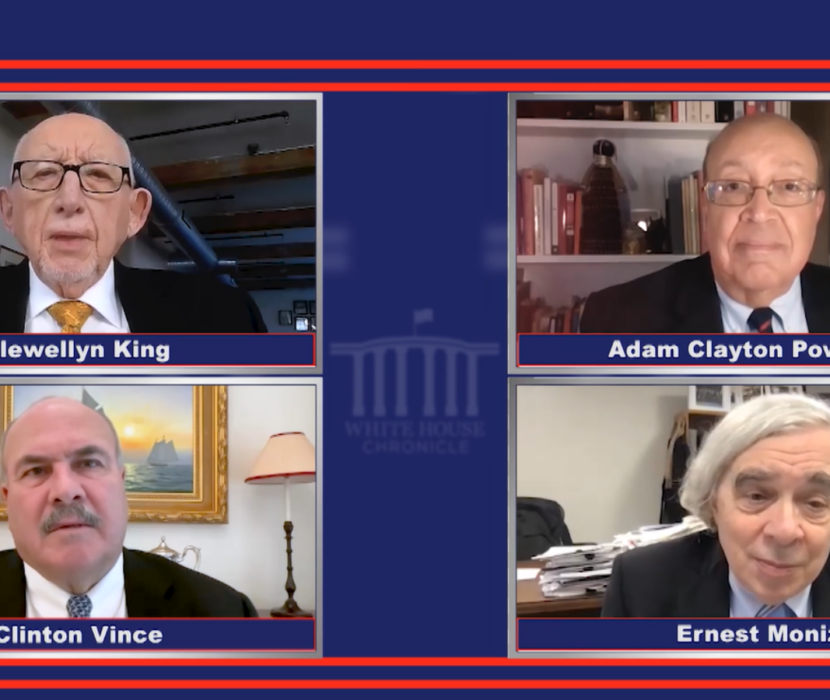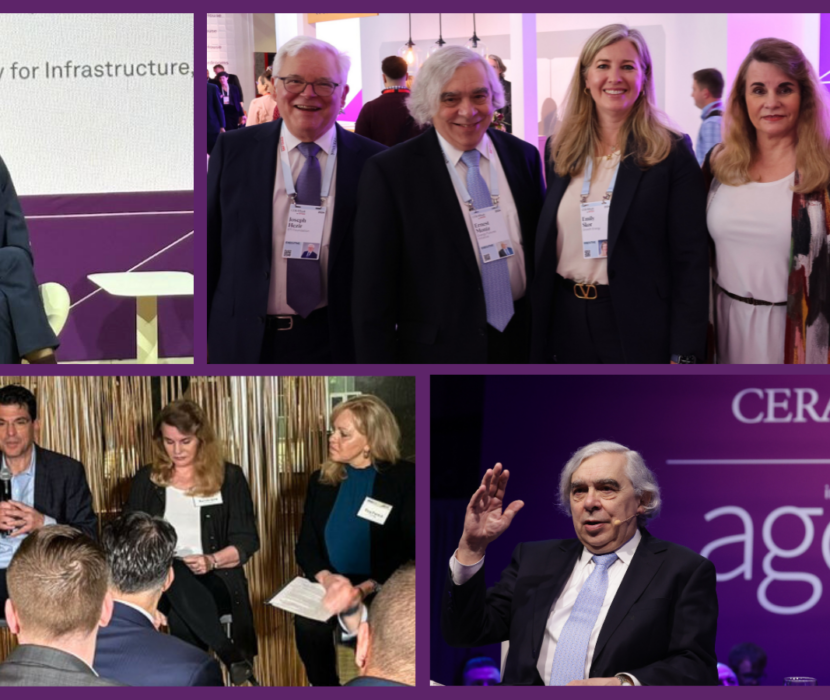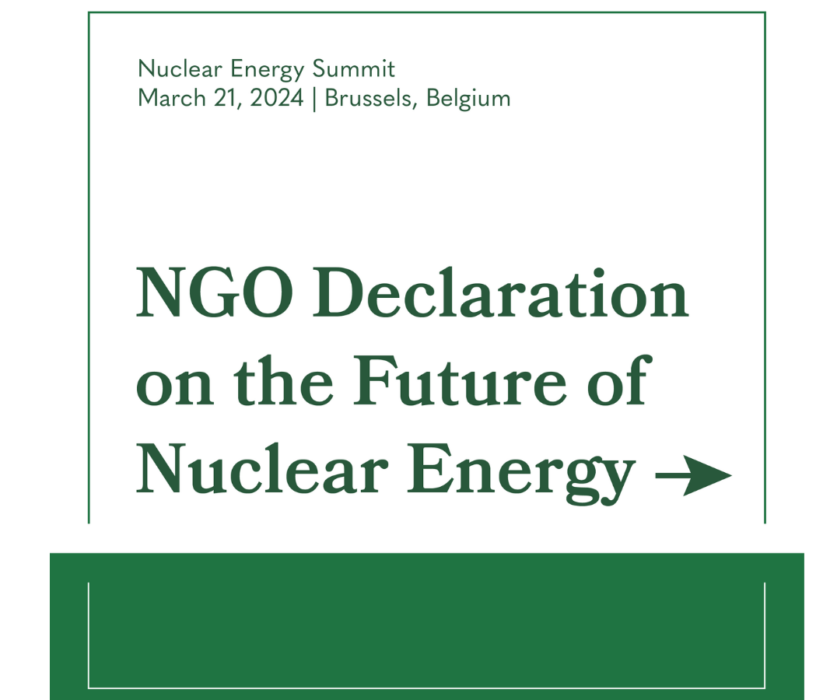Energy Futures Initiative (EFI) Founder and CEO Ernest Moniz discussed the climate crisis and efforts to address it with Chuck Todd, NBC News Political Director and Meet the Press Moderator. Moniz also discussed nuclear fusion’s role in a carbon-free, no-waste future and the policy innovation necessary to push it forward. A portion of the full interview was featured on NBC’s Meet the Press Reports in the episode, “The Hardest Problem: Climate Solutions” (also available to stream for free on Peacock, see time marker 19:50).

“Without success in slowing down dramatically the warming of the planet, there’s no doubt that those extremes of weather are going to increase,” Moniz said. He added that intense hurricanes, wildfires, and droughts will lead to population dislocation and forced migration, creating security problems. He mentioned that speed to address climate change is important, since carbon dioxide in the atmosphere is cumulative.
Moniz explained that it will be very difficult, near impossible, to stick to the 1.5 global warming limit outlined in the Paris Agreement, but that “we’ve got to fight for every tenth of a degree.” He said that there’s no one “cliff event” at which we succeed or don’t, and we’re better off for every tenth of a degree of warming that we can reduce.
On energy prices, Moniz said, “Too often, we forget that this rise in energy prices really hurts the poor the most. It’s another example of social inequity.”
He said coalitions are key to addressing climate change while constructively confronting other societal issues. An example for a carbon tax is the Baker-Shultz plan, which counteracts the regressive tax by distributing dividends.
“We have to build coalitions. It’s not a dirty word,” he said. “We have to treat these as one problem to be optimized, not as something we discuss in our siloes.”
Moniz said states and private companies should lead alongside the federal government in climate action. We need to deploy the low-carbon technologies we have today, which he said should involve tripling our wind and solar power generation.
Nuclear (fission) power plants also have an important role—becoming “absolutely essential” in some regions. Countries that don’t opt for nuclear power will find their “job [to decarbonize is] a whole lot tougher,” he said. For example, Japan has increased its coal use since shutting down its nuclear reactors.
Moniz shared his optimism for nuclear fusion—the “holy grail” of energy. Today’s nuclear power plants produce energy by splitting uranium (nuclear fission), which leaves behind radioactive waste. However, there is no waste when fusing hydrogen isotopes into heavier elements like helium through nuclear fusion. Moniz admitted that nuclear fusion is commonly viewed as unrealistic but believes we can demonstrate in this decade that fusion works.
“It’s a complete game-changer,” he said. “I’m pretty bullish about it.”
For this to happen, Moniz emphasized the need for innovation in technology, business models, and policies. He is most optimistic about technology innovation and said policy innovation is the biggest challenge.
–Sonia Velazquez
(Share this post with others.)




